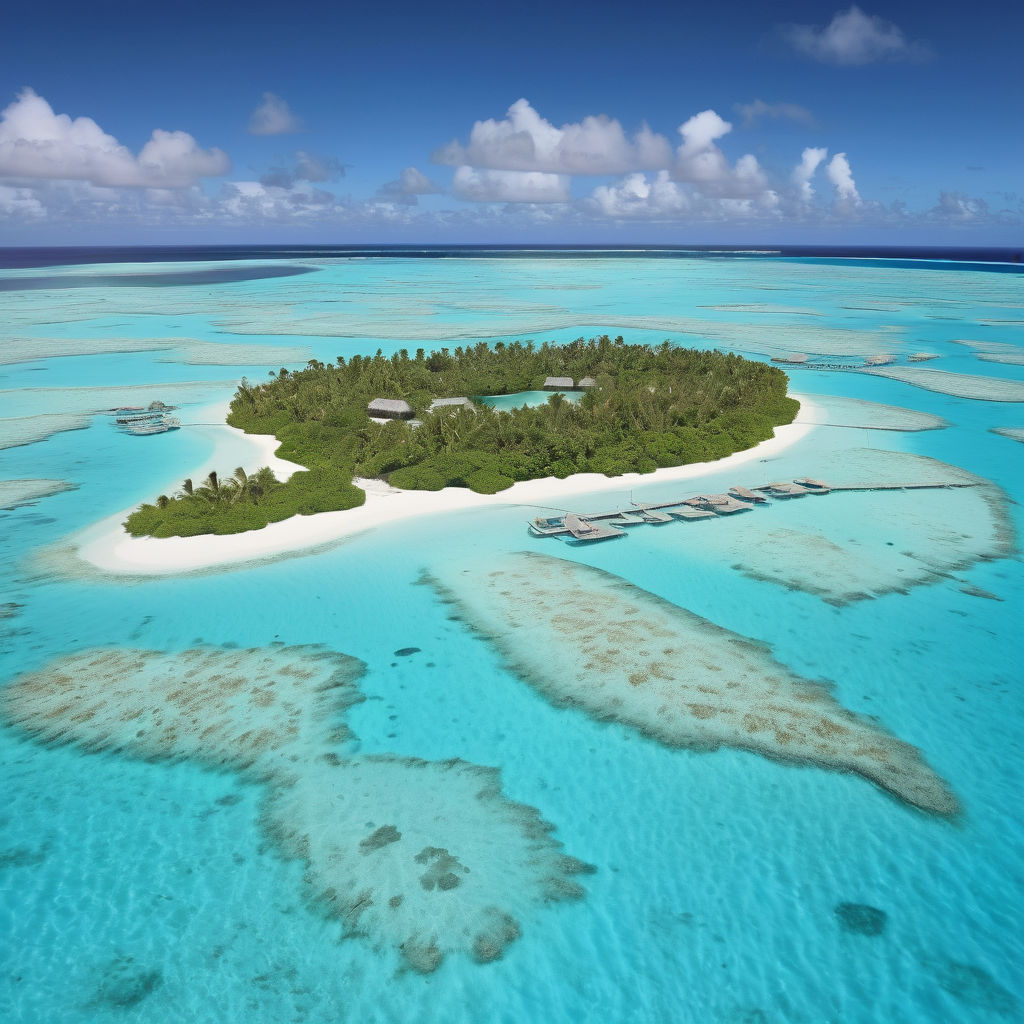Introduction to Tuvalu: A Polynesian Paradise
Exploring Tuvalu's Culture and Way of Life

Introduction to Tuvalu
Tuvalu, a small island nation in the Pacific Ocean, is one of the world's smallest countries in terms of land area and population. Located halfway between Hawaii and Australia, Tuvalu comprises nine islands, with the capital, Funafuti, situated on one of the atolls. The country is known for its stunning marine environment, traditional Polynesian culture, and unique way of life that is closely tied to the ocean. Tuvalu's rich cultural heritage includes traditional music, dance, and crafts, reflecting its Polynesian roots and the strong community bonds that define life on these remote islands.
Cross-national and Cross-cultural Understanding
The people of Tuvalu, known as Tuvaluans, have a deep appreciation for their own culture while also showing openness to engaging with other cultures. This openness is largely a result of their historical interactions with various explorers, missionaries, and traders. Tuvaluans generally perceive other cultures with curiosity and respect, valuing the opportunities for learning and exchange that come from these interactions. Cultural exchanges are an important aspect of Tuvaluan life. The country participates in various regional cultural festivals and events, such as the Pacific Arts Festival, which promotes cultural exchanges and understanding among Pacific Island nations. These events provide platforms for Tuvaluans to showcase their culture and learn from others, fostering mutual respect and appreciation. Educational programs also play a significant role in promoting cross-cultural understanding. Many Tuvaluan students receive scholarships to study abroad in countries like Australia, New Zealand, and Fiji. These experiences broaden their horizons and expose them to different cultures, which they bring back to their communities. Additionally, international partnerships with organizations like UNESCO help to preserve and promote Tuvalu's cultural heritage while encouraging cultural exchange.
Interactions and Social Dynamics
Interactions between Tuvaluans and foreigners are characterized by warmth, friendliness, and a genuine interest in sharing their way of life. Visitors to Tuvalu are often struck by the hospitality and openness of the locals, who are eager to introduce their culture and learn about others. Social behaviors in Tuvalu emphasize community and cooperation. Tuvaluan society is deeply communal, with strong emphasis on family and collective activities. This communal approach extends to interactions with foreigners, who are often invited to participate in local events and traditions. Communication styles in Tuvalu are generally informal and friendly. English and Tuvaluan are both official languages, which facilitates interactions with English-speaking visitors. However, many Tuvaluans also speak other Pacific languages, reflecting the region's linguistic diversity. This multilingualism helps bridge cultural gaps and fosters better understanding. Language plays a crucial role in social dynamics. While Tuvaluan is widely spoken in daily life, English is commonly used in formal settings and for communication with foreigners. This bilingual environment allows Tuvaluans to maintain their cultural identity while engaging with the global community.
Views on Dating and Relationships
Dating and relationships in Tuvalu are influenced by traditional values and the close-knit nature of the community. Relationships with foreigners are generally viewed positively, as long as they are respectful of local customs and traditions. Attitudes towards dating and relationships with foreigners are open-minded, though they are guided by cultural expectations. Tuvaluans value family approval and community acceptance in relationships. Foreigners entering into relationships with locals are expected to understand and respect these cultural nuances. Cultural expectations and traditions play a significant role in shaping relationships. Respect for elders, family involvement in relationship decisions, and adherence to community norms are important aspects. Foreign partners are often welcomed into the extended family structure, provided they show respect for these traditions.
Marriage and Family
Marrying foreigners is relatively common in Tuvalu, and such marriages are generally accepted by the community. Legal considerations for marriage involve adhering to both Tuvaluan and international laws, depending on the nationality of the foreign partner. Marriages must be registered with the local authorities, and there are specific residency requirements for foreign spouses. Socially, family life in Tuvalu is centered around strong familial bonds and communal living. Marriages between locals and foreigners are celebrated, and the community often supports these unions. Family approval is a significant aspect of marriage, and foreign spouses are expected to integrate into the Tuvaluan way of life, participating in family and community activities. Common practices in cross-cultural marriages include blending traditions from both cultures. For example, couples might celebrate traditional Tuvaluan weddings alongside modern practices. This integration of customs enriches family life and fosters mutual respect and understanding.